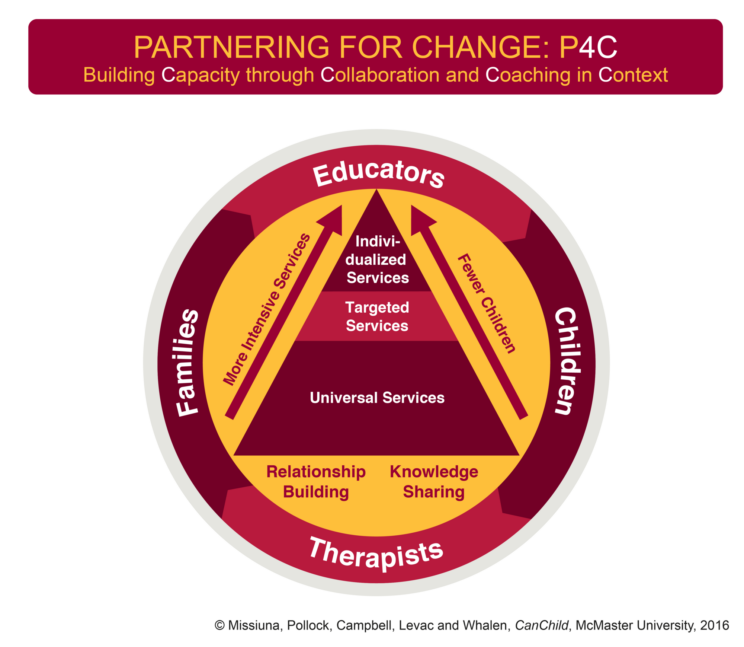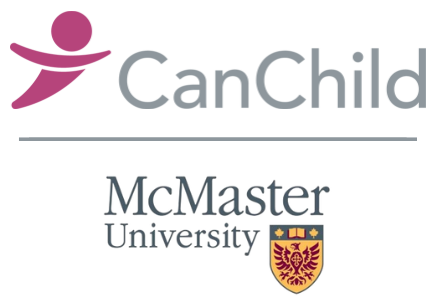
Partnering for Change (P4C)
Partnering for Change is an innovative, collaborative school-based service model initially developed for occupational therapists working in the Ontario school system with children with motor coordination challenges. Since 2008, P4C has been developed, refined and continually evaluated through both qualitative and quantitative research involving key representatives from government, health care decision-makers, service provider organizations, clinicians, schools, and families working with the researchers. In recognition of this need for partnership, we called the initial research project “Partnering for Change,” a name which was adopted for this program of research and the service delivery model.
The P4C model was initially developed to address the needs of children referred for school-based occupational therapy in the province of Ontario, Canada. At the time the model was developed, 85% of the children referred for occupational therapy services were experiencing motor delays. P4C is a tiered service delivery model; occupational therapy services are provided to children based on need. The occupational therapist also supports the whole school community, rather than being focused on individual children referred for service.
Working collaboratively with educators and families, therapists provide support to whole schools and help create classroom environments that encourage successful participation and academic achievement of children.
The goals of the Partnering for Change
The P4C model was originally designed to address the following goals:
- Facilitate earlier identification of children,
- build capacity of educators and families to understand and manage children’s needs,
- improve children's ability to participate successfully in school and home environments, and
- facilitate self and family management in order to prevent secondary disability.
The P4C Model
The research team used evidence from the literature to design the P4C model.

Learn more about the P4C Model.

